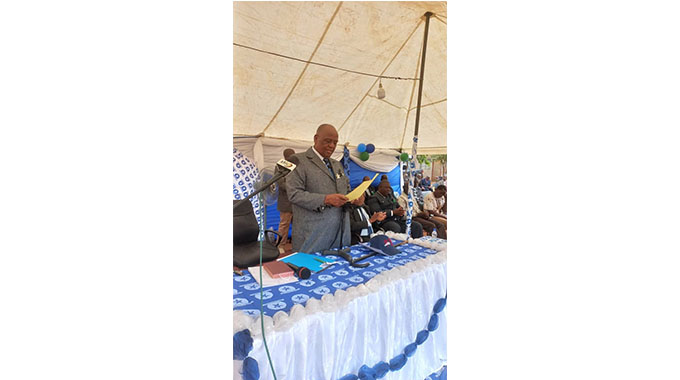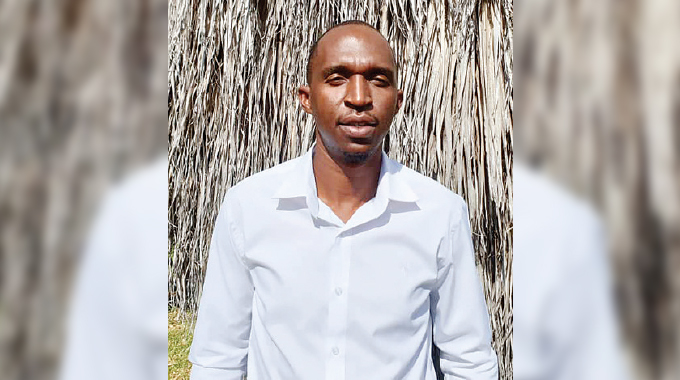Child pregnancies – impact on their education and future
Thandeka Moyo-Ndlovu, Senior Reporter
THE PAST few months have been marred by reports of child pregnancies in the country with the youngest to give birth being eight.
Although the incidents of youngsters who are not yet teenagers sparked debate on their physical and emotional well-being, nothing much has been said about the projected impact on their education and future.
Of course, teenage pregnancies are life-threatening as they increase one’s risk of maternal mortality, and lifelong disabilities which may result from labour but these are also a major threat to the education of girls in Zimbabwe, especially the vulnerable and orphaned ones.
In 2021, 14 600 pupils, including 238 primary school girls dropped out of school due to pregnancy and child marriages, according to the Primary and Secondary Education Statistics Report.
That figure accounts for 21 percent of the total number of learners who continue dropping out of school in Zimbabwe, jeopardising their future.
The same report shows that an average 25 percent of orphaned and vulnerable children in the country rely on development partners for educational handouts as the Government-funded Basic Education Assistance Module cannot cater for the over one million children who need financial help to access basic education from early childhood development to secondary school.
However, the same vulnerable children have been gambling with their future as they too are falling pregnant even after getting opportunities to study despite their financial challenges.
Soneni* (15) is one of the more than 100 teenagers from Mawabeni, Umzingwane District, who dropped out of a local school last term due to pregnancy.
Unlike several youths from the mining area whose parents can afford school fees, Soneni is an orphan who had been living with her distant aunt for five years.
Some may argue that education is no longer the key to success but it does unlock necessary doors that every Zimbabwean child like Soneni needs to be progressive.
“I grew up wishing to be a teacher so that I instill confidence in children who had painful childhood experiences. I dated this man who runs a shop at the business centre and fell pregnant just a few weeks after we started having unprotected sex.
I can’t blame anyone for the choice I made but what I know for sure is that my future is bleak. None of my close relatives wanted anything to do with me and I was a beneficiary of Camfed (Campaign For Female Education) before I fell pregnant. I know that pregnant learners can continue with school but it’s clear that I have kissed a brighter future goodbye,” she said wiping away tears.
In an interview, Ms Sithulisiwe Dube, the child focal person for the Mawabeni area said the most worrying trend is that a majority of these learners are beneficiaries of bursaries from development partners, who are now counting losses as a result of girls who dropped out of school after falling pregnant.

Ms Sithulisiwe Dube
“We have a serious challenge with these pregnancies and I wonder who will bail us out since the needy ones are taking the lead in falling pregnant. When we grew up, we knew that orphans and vulnerable children had no choice but to take up every opportunity to secure their future but sadly these days they’re so careless and waste resources from well-wishers,” said Ms Dube.
“We’re such a shame because we’re not able to control the rate at which they’re falling pregnant but we’re sure of a cursed generation of elders as our children are doing everything possible to drop out of school.”
She said massive campaigns could bring about change as some elderly men were responsible for these teenage pregnancies.
The country was supported by the European Union to the tune of US$30 million for the first phase to help Zimbabwe meet some of its Sustainable Development Goals (SDG 3 and 5) on empowering women and girls to realise their full potential in a violence-free, gender-responsive and inclusive environment.
Part of these funds were put towards the education of disadvantaged girls in different communities.
An official from one of the affected organisations who preferred anonymity said they were losing thousands in school fees paid for girls who fall pregnant before completing their studies.
“We normally pay fees for a full year per child and sadly some children drop out of school due to pregnancy just after one term. We never get refunds for such scenarios and these days more and more of our beneficiaries are just falling pregnant at an alarming rate. Last year, we had high hopes for our beneficiaries doing Form Four and quite a number fell pregnant before writing their public examinations,” he said.
“This issue is not only about the risks associated with teenage pregnancies but the future. I mean, what will happen if these children drop out of school just like that? In the olden days, we could easily blame lack of finances but now even interested donors are wondering if it’s still worth it to continue paying fees for girls who deliberately fall pregnant. We need serious interventions.”
Ministry of Primary and Secondary Education spokesperson Mr Taungana Ndoro said the Government had put in place measures to help rehabilitate girls who fall pregnant and drop out.

Teenage pregnancy
He said development partners should also look into engaging communities that must work harder to ensure that girls complete their education without engaging in sexual activities or getting married.
“These donors can go through their non-governmental organisations and then make programs within communities advocating against early indulgence in sex, child marriages, etc before they select beneficiaries. We need community engagement on this one so that we avert these problems. Communities should support these programs and ensure that girls don’t fall pregnant,” said Mr Ndoro.
“We also have our interventions and community outreach programs in mining areas where there’s no more mining taking place and farming is robust.
Teenage pregnancies are very high so we have these monthly and quarterly meetings where we target young mothers and all those who dropped out of school for no apparent reason. Some children drop out due to a lack of interest which was worsened by breaks during the Covid-19 disruptions.
They’re not pregnant, they’re not mothers, and they don’t have financial problems but they just think school is not necessary. We need all children to complete their studies so that we achieve Vision 2030.” — @thamamoe












Comments